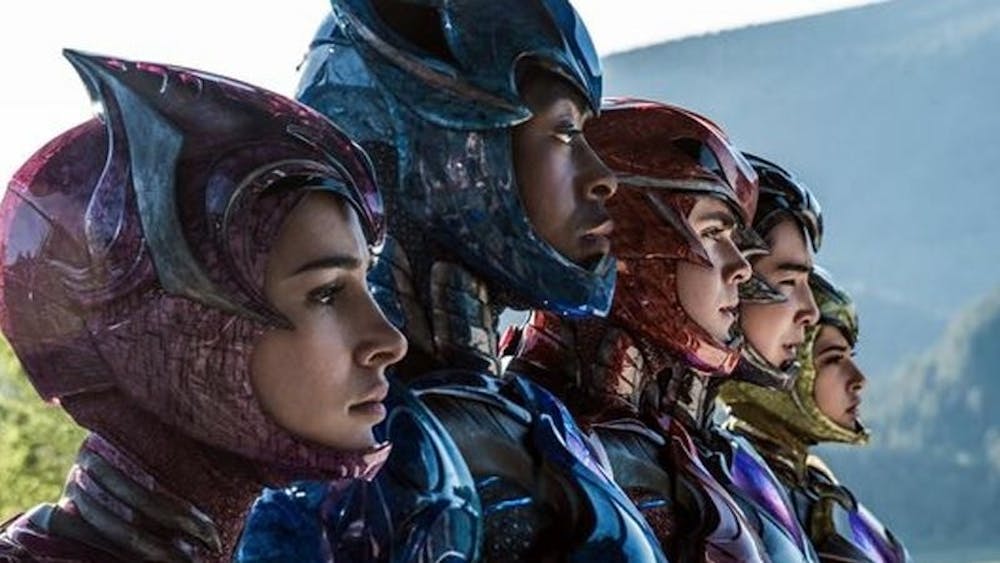A team of young, inexperienced heroes is thrown into the midst of a high-stakes battle where only they can defeat a seemingly all-powerful villain backed by a faceless army of minions. These days, dozens of blockbusters are adopting this inescapable formula — including “Power Rangers,” the latest bland entry into the increasingly generic superhero genre.
After discovering a set of colored crystals in the wreckage of an ancient alien spaceship, the protagonists find themselves faced with the impossible task of saving the world from a supernatural villain.
This ragtag group of five high schoolers assembles by random luck, and they supposedly forge a close bond throughout their adventures. Like much of the film, the characters derive from tired movie tropes — there’s the popular athlete with a soft side, the popular girl who’s secretly rebellious, the nerd who turns out to be cool, the tough guy who likes showing off and a complete outsider to round them out.
The power of the five rangers’ bond is a major part of the plot, which becomes a significant problem when no such special bond ever seems to develop. Viewers are told The Power Rangers’ powers are drawn from their special connection or harnessed by their team spirit. It’s not entirely clear what the rangers’ powers are or how exactly they can access them, but what is clear is the complete lack of connection between them. The five don’t seem to get to know or care about each other over the course of the movie, except for a few painfully contrived instances of “teen bonding” — they sit down around a fire with a few beers and instantly decide to share their deepest secrets.
This is no fault of the five lead actors themselves, though. They simply never have time to establish their characters — or their subsequent relationships with each other — beyond the surface level. In fact, some of the cast members are fairly impressive. The Blue Ranger, Billy (RJ Cyler), particularly injects some much-needed energy into the tired plot. As a nerd who met the others in detention after accidentally blowing up his lunch box, he has quite a few funny quips and adds some real humor to an otherwise predictable movie.
Beyond the leading five characters, “Power Rangers” has little to offer except the same formulaic plot so many other superhero blockbusters have followed to box office success. The movie’s villain, Rita, looks so similar to the villain of “Suicide Squad” it’s almost laughable. Her anonymous army of rock-shaped beings is easily interchangeable with the expendable minions the Avengers fight off. With no apparent motivation, Rita’s plan to destroy the world develops just as it has in countless other action movies.
This trite set of tropes trotted out in nearly every recent superhero release is hopefully — for audiences’ sake — on its last legs. At one time, the huge explosions and epic battles were enough to prop up a flimsy script à la “Power Rangers,” but that simply doesn’t cut it anymore. With any luck, fans will see some originality in the genre in the coming years. For now, however, the best bet is to skip “Power Rangers.”





